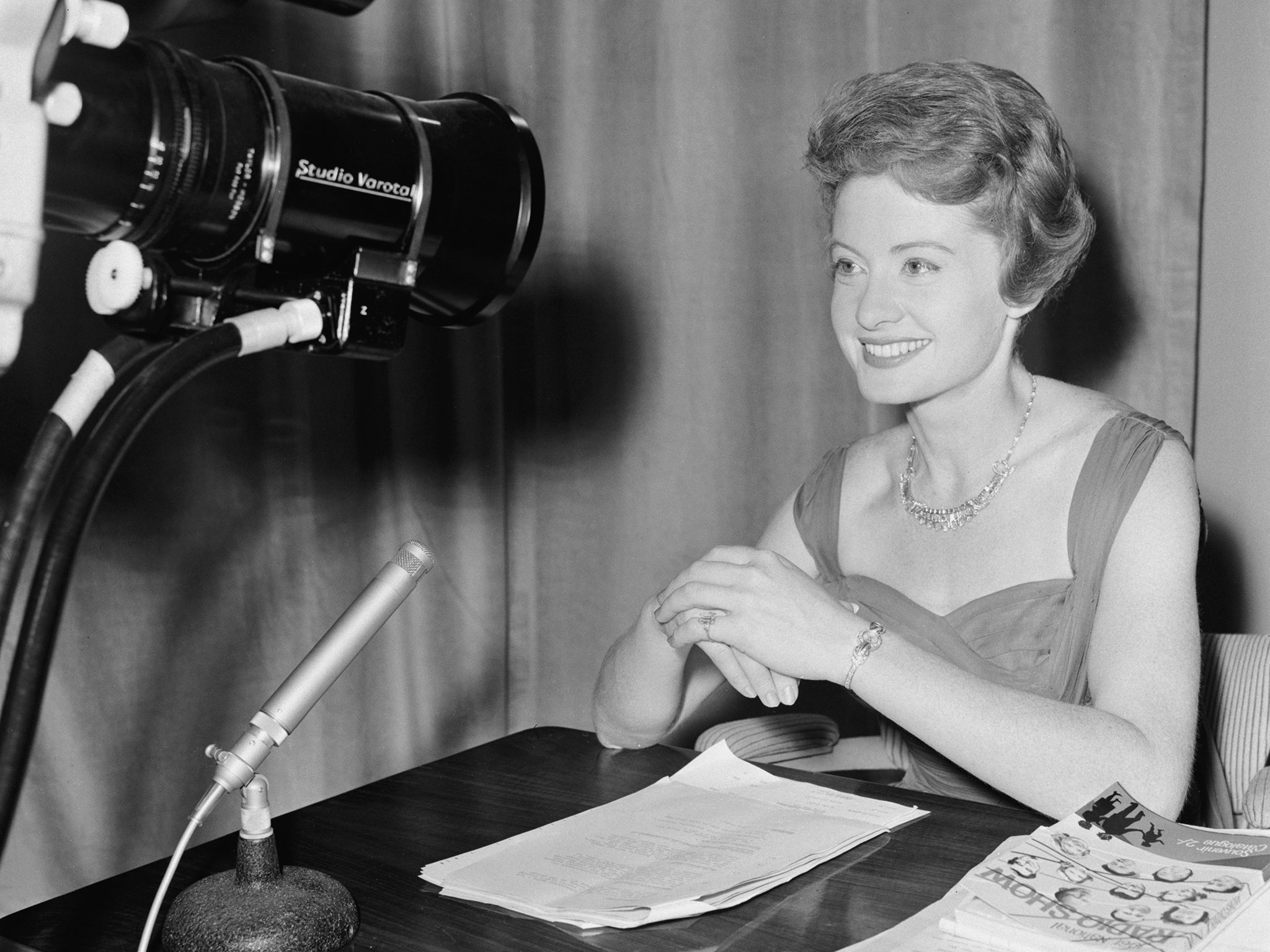Sheila Tracy: Trombonist who became Britain's first woman newsreader before presenting 'Truckers Hour' and 'Big Band Special'

Sheila Tracy was Britain’s first woman newsreader, who took to the air on BBC Radio 4 in 1974. Although the BBC’s news service had been set up by a woman, Hilda Matheson, in 1927, it would be nearly half a century before women were allowed to present the news on national radio or television.
She was born Sheila Lugg in 1934 in Mullion, near Helston, Cornwall, and educated at Truro Girls School before going to the Royal Academy of Music to study violin, trombone and piano. “Down in the string section at the Royal Academy, it was all girls,” she remembered, “Up in the brass were all the boys! I had never played a brass instrument before, but it all worked out. I have never been out of work.”
She joined the Ivy Benson All Girls Band during 1956. Benson (Independent obituary, 10 May 1993) had started the group in the late 1930s as a nine-piece and it became known for the quality of its performances and its ever-changing crew. During the summer season the group would play at the Villa Marina on the Isle of Man and at Butlins holiday camps. She left two years later to form the Tracy Sisters, with Tracy on trombone and her fellow trombonist in Benson’s band, Phyl Brown, doubling as the singer. The pair appeared in cabaret and variety, as well as on radio and television and travelled widely, including three months in India at Calcutta’s Great Eastern Hotel.
Tracy’s mother suggested that she apply to the BBC for a job. She was accepted and worked initially as an “in vision” announcer, before presenting BBC Spotlight South West from Plymouth and A Spoonful of Sugar with Michael Aspel.
She joined BBC Radio 4 in 1973. On the evening of Tuesday 16 July 1974 she made history, delivering the late night bulletin and becoming the first woman to read the radio news. Angela Rippon followed shortly afterwards, the first woman newsreader on television. “I always wanted to do what the men were doing!”, Tracy commented later, “My picture was on the front page of The Daily Telegraph. There was a little piece saying ‘woman makes radio history’. Angela and I opened the floodgates.”
Tracy moved to Radio 2 three years later, then in 1982, while holidaying in the US, she read a Washington Post article about Big John Trimble, a DJ favourite of American truckers. The serendipitous discovery led to her presenting her own ‘Truckers Hour’ on Radio 2 as the middle part of her weekly three-hour show, gaining a cult following with British lorry drivers. Unfortunately for Tracy, she read verbatim some of the letters and postcards she was receiving from drivers, which were in coded CB radio slang, upsetting BBC management. The show, which she remembered as her “most successful”, was dropped after a year.
Her continuing engagement with music led her to present the BBC’s Big Band Special in 1979 as a showcase for the BBC’s own jazz orchestra. Originally planned as a short series, the show was so successful that it has continued, with Tracy as host, for more than two decades. A regular spot on the PrimeTime Radio digital channel followed from 2001 until 2006, when the station closed down.
Tracy wrote widely about her musical passion. Bands, Booze and Broads (1995) was, she said, never planned as a book. “It was a series of interviews I’d carried out in the process of making various documentaries on American bands of the swing era for BBC Radio 2,” she recalled in the introduction. Having subsequently been asked to publish a similar book about British bands, at first she resisted, but later commented that “with several of our prominent musicians well into their eighties and nineties, I though it better to delay no longer!”
The result was Talking Swing: The British Big Bands (2008), with a foreword by the great jazz pianist George Shearing, in which she interviews many of the great figures of the big band era. She had earlier written two other reference works, Who’s Who on Radio (1983) and Who’s Who in Popular Music (1984).
Tracy received a number of awards, including Freeman of the City of London (1997) and Associate of the Royal Academy of Music (2002). She received the Alan Dell Trophy for services to music (2002) and was honoured by the Big Band Academy of America (2003).
On a visit to her alma mater last year she explained her philosophy of life, advising the current pupils of Truro Girls School to “Take it easy, let things happen, don’t want to become famous but instead, do what you enjoy. If you don’t know what you enjoy, just do your best because things have a way of working out.”
The controller of Radio 2, Bob Shennan, said in tribute: “Sheila was a wonderful broadcaster with an extensive knowledge and love of big band music. She was a voice on BBC Radio 2 for over 20 years and was much loved by the audience.”
Sheila Lugg (Sheila Tracy): broadcaster and musician; born Mullion, Cornwall 10 January 1934; married John Arnatt (died 1999; one son); died Esher, Surrey 30 September 2014.
Join our commenting forum
Join thought-provoking conversations, follow other Independent readers and see their replies
Comments